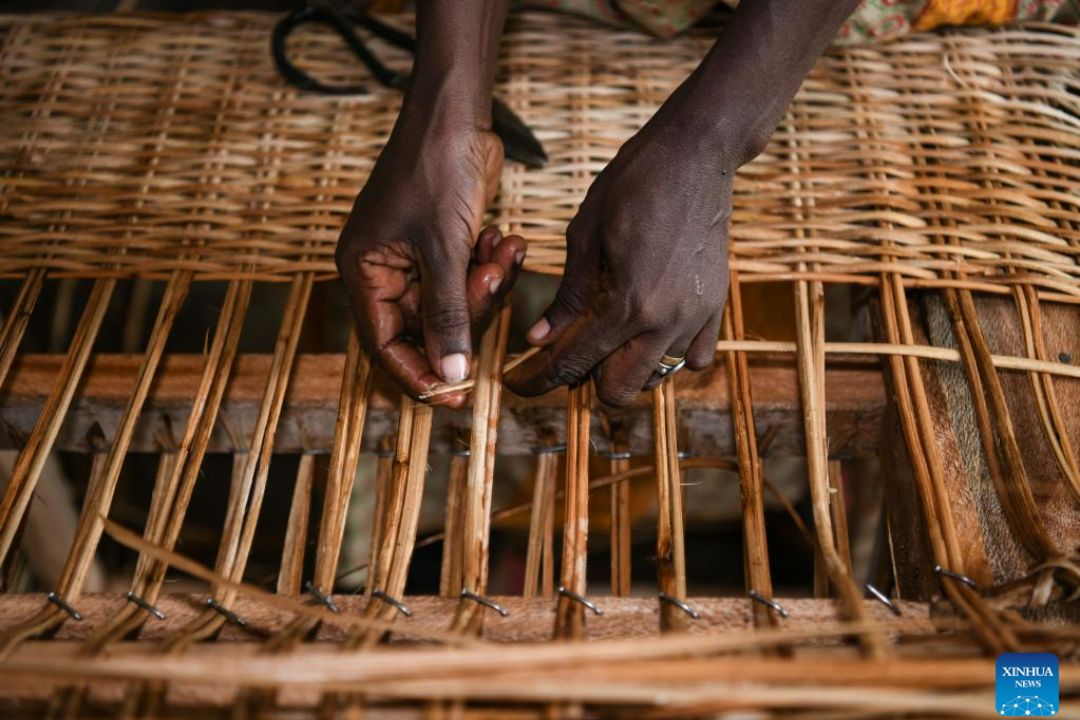
Thin, slender strips of bamboo are intertwined and twisted in the hands of artisans and ultimately woven into a variety of utensils, including baskets and lanterns. Then, the products, mainly lighting fixtures, are sent to Brazil, Europe and the United States.
Bobai District in Yulin is reputed to be the birthplace of weaving crafts in China and is the main export base for Guangxi rattan crafts. The technique dates back nearly a thousand years and was listed as Guangxi’s intangible cultural heritage in 2016.
“I never expected that our products could be exported from Guangxi to Brazil,” said Huang Lianjiang, manager of Bobai Huangtu Arts and Crafts Company, which sells materials in more than 20 countries and regions.
In 2018, Huang’s company met a Brazilian importer on an international platform. Since then, bilateral trade began and orders increased. Nowadays, the two sides are constantly strengthening their ties on the online platform, discussing order demand and future development direction. “Brazil has always been our stable partner, and products such as lampshades are selling well,” said Huang.
Given the rapid development of online sales platforms, the company began broadcasting live, promoting its products in English, Portuguese and other languages.
“I can speak a little Portuguese and sometimes I present our products to customers,” said Liu Baiyou, the company’s foreign trade manager. “Foreign customers are very interested in our rattan crafts because they are environmentally friendly and close to nature.”
The year 2024 marks the 50th anniversary of the establishment of diplomatic ties between China and Brazil. In recent years, bilateral exchanges in political, economic, commercial, cultural and agricultural fields have become increasingly closer. “Friendly exchanges between the two countries are the basis for deepening our economic and trade cooperation. We are also looking forward to further exploring the Latin American market with Brazil as the hub,” said Huang.
Source: https://www.chinahoje.net/artesanato-tradicional-chines-ganha-espaco-no-mercado-brasileiro/

